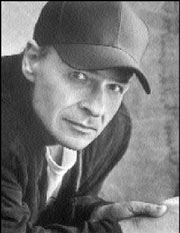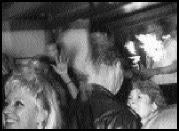JULY, JULY
by Tim O’Brien
(Houghton Mifflin, $26) Benaroya Hall, 206-621-2230, www.lectures.org., $10 7:30 p.m. Mon., Nov. 4
DOES THE WORLD really need another heartfelt, mournful paean to the children of the ’60s? Is there anyone not currently living under a rock who doesn’t know all there is to know about the dashed hopes, unfulfilled promise, and crushed dreams of the Most Important Generation? Tim O’Brien —who’s written beautifully about the Vietnam War in classic books like Going After Cacciato and The Things They Carried—seems to think so. His latest effort, July, July, takes a too-serious look at a group of disappointed, disaffected baby boomers who’ve gathered for their 30th college reunion (31st, actually, thanks to an oversight by the whacked-out party planner) at Darton Hall College in Minnesota. The fiftysomethings get trashed, rehash their regrets, rekindle old flames, and eulogize the dead over the course of a bittersweet weekend in July 2000.
Interspersed with scenes from this millennial reckoning are vignettes from the lives of the Class of ’69, detailing the formative experiences that made them who they are. One by one, O’Brien paints a dozen characters who are simultaneously stereotypical and bizarre, with melodramatic back stories too over-the-top to believe. Meet Jan Huebner and Amy Robinson, former roommates at Darton Hall. Ugly, artistic Jan made a killing in college posing naked for pervert photographers. Amy won $230,000 at a roadside casino on her honeymoon but wasn’t as lucky in love, staying married just two weeks. Meet Spook Spinelli, a polygamist and nymphomaniac who wears miniskirts and has, O’Brien informs us, “a well-preserved ass.” (O’Brien has a habit of depicting women misogynistically, and the flaky, sex- obsessed nuts at this reunion are no exception.) Meet David Todd, the senior lieutenant who lost a leg in Vietnam and is haunted by the disembodied radio announcer in his head. He’s never gotten over his love for ex-wife Marla Dempsey, another Darton Hall alum, who rode away on a Harley on Christmas morning.
There’s more, of course. Much more. But eventually all the people and their stories blend together into a central thesis: Once upon a time, back in the golden ’60s, there existed an innocent, beautiful generation filled with the belief that it could change the world. Then it all went wrong. The hopeful visions of the ’60s have turned into nightmares of lost opportunity, self-pity, and regret. The boomers are getting old and confronting their mortality. Their lives are catalogs of abandoned dreams. And the future doesn’t look much brighter.
Take this passage, voiced by disgraced small-town minister Paulette: “It’s tough to remember, . . . but back in those golden-oldie days, we had faith. No more funerals, no more toothaches. Undo the wrongs, erase the pain, grow younger every day, fall in love forever. So dumb, so quixotic. But we did believe. And then we became America.” Or this one, part of a conversation between bitter divorc饳 Amy and Jan after drinks at a bar populated with people “mostly unborn in 1969” (horrors!): “We tried to change the world, but guess what? World changed us. Dumb-ass clich鬠I know, and that’s what makes it so sad, so depressing. All those platitudes Mom and Pop used to feed us like baby food. They’re true.”
Well, so? The middle-aged gripes and groans of those who came of age in the ’60s have been hashed and rehashed a hundred times, and July, July doesn’t amount to much more than another lament to throw on the pile. Instead of offering an incisive look at the decades that shaped his generation, O’Brien has decided to stick to familiar ground, and this maudlin, self-indulgent book leaves his readers the poorer for it.








